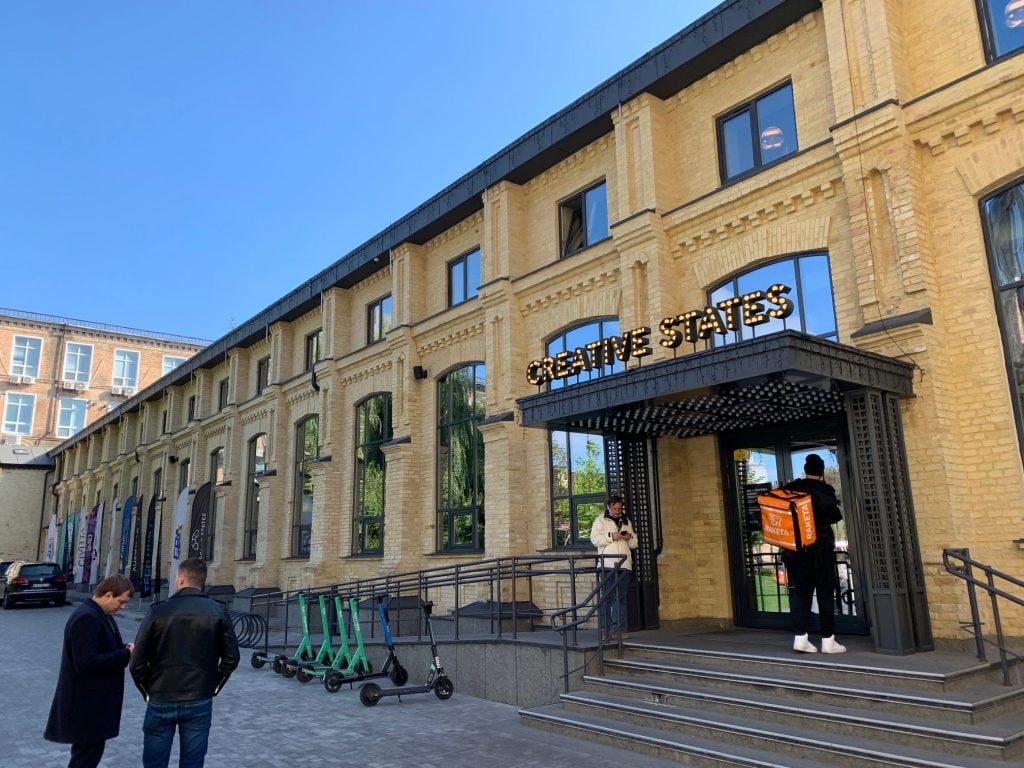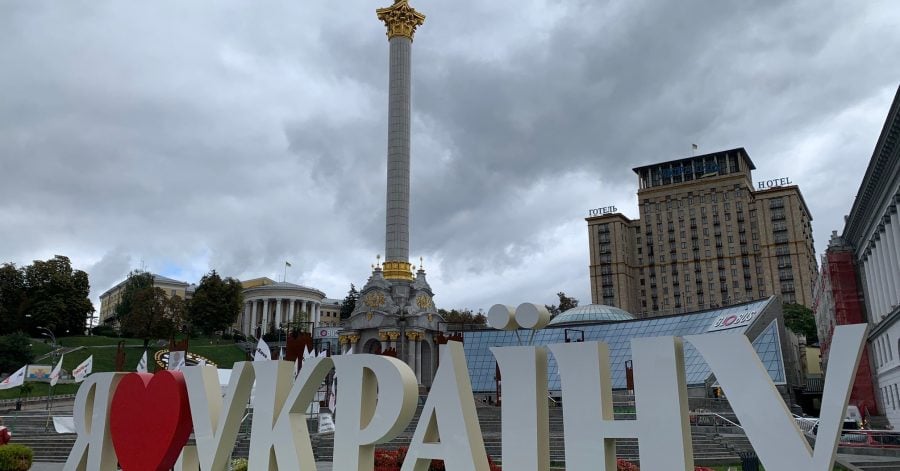On the morning of February 24, 2022 people across Ukraine woke up to a new reality, finding the country and most of its cities under heavy military attacks from neighboring Russia. For most, there is a confusion as to what is happening and why has Russian President Vladimir Putin ordered such a military offensive against the country.
For Ukrainian startups and businesses, however, the time to act is now, as most have to consider their options as the conflict threatens to endanger and disrupt various industries in the country.
The IT industry is one of them, as Ukraine has a young and vibrant tech ecosystem with many startups and businesses in verticals such as medtech, AI, fintech and much more.
The 44-million nation also has a vast IT talent pool, as many global companies are either present in the country themselves, or outsource and work with skilled professionals from the region.
For Kyiv-based ecosystem builder Galyna Paliychuk, while it is definitely hard to predict what will happen to Ukrainian startups and businesses next, in the long run the tech ecosystem should be good.
“Since most startups are globally oriented, I don’t think they’ll be negatively affected by the war. They could be based in Ukraine, or founders can relocate somewhere else, but in general this type of business will be good,” Paliychuk tells The Recursive.
Also, developments in the conflict could provide startups with additional opportunities as well, she says.
“Probably other countries that have startup visa programs could open their doors widely to them, it could be possible. Besides, global support of Ukrainians in general can be a good opportunity. I tend to be more positive in life, looking at problems as opportunities.” Paliychuk added.
Difficult and unpredictable situation for most businesses
Some Ukrainian startups have also decided to stay in the country. One of them is Reface, an AI startup that has been working on various ML projects. At the end of 2020, Reface managed to raise $5.5M in seed round for developing its face-swap video app.
Amid the tense political situation in the country, Reface has decided to stay in Ukraine and keep developing its business.
“Our co-founders and team decided to stay here in Kyiv, as we believe in our product, we have ambitious plans, and now it’s important to focus on our goals, and continue to develop business together and just use common sense,” Reface’s PR manager Daria Kravets told The Recursive on Tuesday, just a few days before the Russian attacks on the country began.
Reface has also taken steps on how to make its users aware of what is happening in Ukraine right now.
“We have started a massive information campaign, showing the evidence of Russian attacks in our cities, asking people to stand with Ukraine. We’ve sent push-notifications to all Russian users showing the real situation in Ukraine, we’ve added in-app messages to the users from all over the world to support our country, and now every video made with our app has a watermark with #standwithukraine and Ukrainian flag. We are risking everything, we’ve already got a lot of 1-star reviews, but it’s such a small price to pay compared to our lives and freedom,” Kravets tells The Recursive.
However, there is also a visible discomfort over what is happening in the country now. Creative States is one of the country’s most popular coworking spaces, with offices in Kyiv and smaller cities such as Dnipro, and where many young startups are beginning their entrepreneurial journeys.
While the coworking space has kept their offices in Kyiv open, they have cautioned people not to come and to stay safe.
“We are open so people can take their things, but we ask them not to come,” Mark Dolinsky from Creative States tells The Recursive, adding that many people are fleeing Kyiv as we speak.

Many Ukrainian startup founders have also voiced their opinions on social media, urging their compatriots not to give up, while also advising international companies to keep working with Ukraine.
“Recently, our IT sphere and other industries have been suffering a shortage of foreign partnerships. We have all the resources to advance and flourish – so don’t be afraid to work with Ukraine. Maybe it’s new to the world, but we’ve been living like this since 2014. We learned how to run our businesses even in such conditions. And some of the Ukrainian startups even became unicorns and world-leading companies during these past 8 years. This war didn’t stop us then, and it won’t now,” Ukrainian entrepreneur Dario Fedko wrote in a LinkedIn post that went viral.
For others, such as UK-based Ukrainian entrepreneur and CEO of VR platform Musemio, this is a situation for which no one could have prepared for.
“My team is based in three major cities, Kyiv, Dnipro and Kharkiv, 40 km away from the border with Russia. No one taught me what a CEO needs to do when the war starts. This is not the lesson I ever wanted or was ready to learn. I have messaged my team this morning and have asked them to let me know if I can do anything to help. However, unfortunately, there is nothing I really can do. I can only be there for them and their families and be ready to provide emotional support if they ask for it,” Kravchenko wrote in a LinkedIn post.
Kravchenko also sent a message to those companies that have hired Ukrainian nationals, asking them to be there for them in these times of need.
“The ones now in Ukraine are living through the worst nightmare, and they are scared for their lives and their future. It would help if you were prepared to accept that these people are now in survival mode and might be ordered to go to shelters. They might lose any connection with the outside world. They might choose to stay offline as much as possible to avoid informational distress. They need to know that they have your support,” she emphasized in the social media post.








